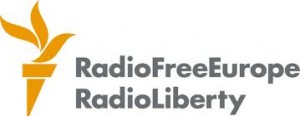 The history of Radio Liberty is the stuff of Cold War legend: dissidents huddled around a contraband radio in some dimly lit room in a cold and dreary gulag, hoping desperately to hear that the world recognized their suffering and that the promise of liberty was still within reach. Funded by the U.S. over decades, Radio Free Europe/Radio Liberty, Radio Marti, the Voice of America and related programs shared news from “the free world” with those whose only other option was government controlled media. Even as the Cold War receded into history the U.S. still maintains an active global communications network (now moved beyond radio to video and internet) to share news with areas of the world where news is tightly controlled by totalitarian regimes. That effort is now imperiled in parts of the world where it may be most needed. In Russia, for example, where democratic gains are being quickly reversed, a confluence of events is now endangering the radio program. According to The Washington Post:
The history of Radio Liberty is the stuff of Cold War legend: dissidents huddled around a contraband radio in some dimly lit room in a cold and dreary gulag, hoping desperately to hear that the world recognized their suffering and that the promise of liberty was still within reach. Funded by the U.S. over decades, Radio Free Europe/Radio Liberty, Radio Marti, the Voice of America and related programs shared news from “the free world” with those whose only other option was government controlled media. Even as the Cold War receded into history the U.S. still maintains an active global communications network (now moved beyond radio to video and internet) to share news with areas of the world where news is tightly controlled by totalitarian regimes. That effort is now imperiled in parts of the world where it may be most needed. In Russia, for example, where democratic gains are being quickly reversed, a confluence of events is now endangering the radio program. According to The Washington Post:
The radio station, funded by Congress but independent of it, has embraced a digital future, dismissing 37 journalists as it downsized just before it lost its only local broadcasting license here in November, when a 2011 law preventing foreign ownership came into effect. Traditional media everywhere grapple with the Internet age and the wide availability of information, but here in the Russia of Vladimir Putin, where news is highly political and controlled, a small but loyal radio audience that treasures unbiased reporting has declared itself betrayed. Even Mikhail Gorbachev, the last Soviet president, has complained. The name Radio Liberty — Svoboda in Russian — carries memories of overcoming Soviet oppression, freighted with disappointment over failed democracy, and its transformation is mourned.
It would be unfortunate if the changing political climate in Russia along with new budget realities are successful in doing what the old KGB could never do: silence the voice of liberty.
Some may question the value of such programs in the internet age, but as my previous blog post on internet governance noted, many repressive governments have already demonstrated a remarkable ability (and political will) to control and monitor internet communication. At a time when similar programs funded by other governments are being phased out (the BBC Foreign Language Services, for example) this is the time to consider the strategic value of such programs rather than merely their economic value. Let’s not forget, gulags still exist, as Google so well demonstrated today with their release of Google Maps of North Korea. It would be a shame for this generation that enjoys the most advanced communications systems ever devised to turn their back on a legacy project that brought the light of liberty to gulags and political prisoners when they needed it most. Those suffering that fate today deserve nothing less from us.
Image Credit: Index on Censorship